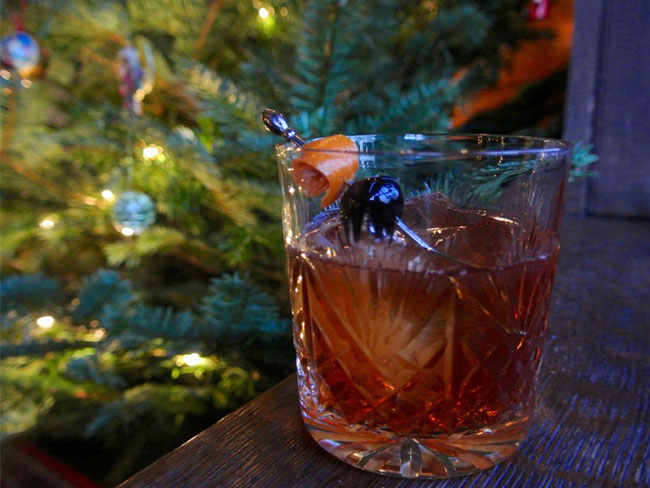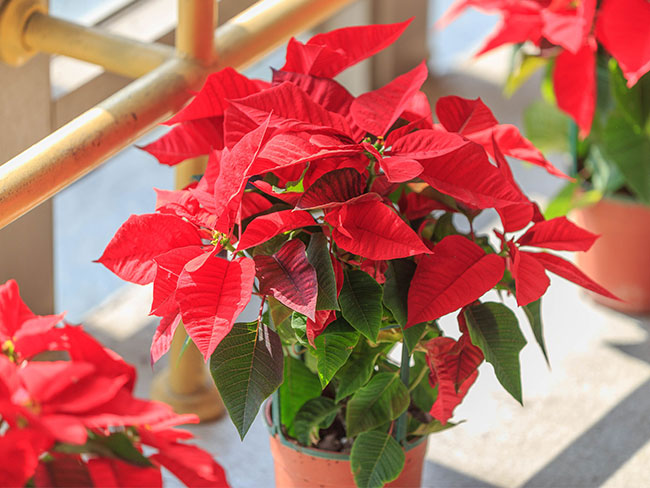The holiday season is an exciting moment for both pets and pet parents. However, there can be a lot of potential dangers for cats and dogs, especially poisonous plants and food. This article would provide some useful tips to keep your furry friends safe and enjoy a stress-free Christmas.
What sort of festive plants are toxic to cats and dogs?
Contrary to popular belief, poinsettia is not specifically toxic, but can still cause intestinal upset. Poinsettia sap can be irritating to the mouth and stomach of the cat and dog that chews on the leaves or stems of this festive plant.
Some mistletoe species are toxic, causing liver failure or seizures, while other species are only irritating to the intestinal tract if ingested. The fact that there are several types of mistletoes make it difficult to predict the clinical signs of poisoning with this popular holiday trimming. It is wise to consider mistletoes as hazardous and keep it out of reach of your pets.
Besides, all parts of many plants belonging to the lily family are highly toxic to cats, just one or two bites of a lily can cause acute kidney failure in cats – even the pollen and the water that the plant is in are poisonous. Because of this risk, it is best to prevent your cat or kitten from chewing on peace lilies, Christmas lilies, or other
plants belonging to this family.
What food and beverage are most problematic to my pet?
With the holiday season comes a delightful variety of festive drinks, baked goods, chocolate confections and other rich, fattening foods. However, it is not wise, and in some cases, can be quite dangerous, to share these treats with your pets. Potential problems include:
- Foods containing grapes, raisins, and currants (such as fruit cakes, breads, and cookies). These can result in kidney failure in dogs.
- Most pet owners know not to give alcoholic drinks to their pets; however, alcohol can be found in other places such as rum soaked cake and in raw bread dough containing yeast. Ingestion of alcohol by your pet can cause signs including ataxia (difficulty walking), disorientation, changes in blood pressure, and abnormal blood sugar levels. In addition to the risks associated with alcohol ingestion, raw dough can expand in your pet’s stomach and can result in bloat, which may be life threatening.
- Chocolate and cocoa contain theobromine, a chemical similar to caffeine. Ingestion in small amounts may cause vomiting and diarrhea, with cardiovascular and neurologic changes possible with large ingestions. The amount of theobromine present in chocolate depends on the type. White chocolate and milk chocolate contain the lowest amounts of theobromine, while unsweetened and baker’s chocolates contain high amounts of theobromine. The specific risk to your pet depends on the amount ingested, type of chocolate and size of your pet. Pancreatitis (inflammation of the pancreas) is a concern even in cases where poisoning is not expected.
- Many sugar-free gums, candies, and baked goods contain xylitol, a natural sweetener which is toxic to dogs. Ingestion of xylitol may result in a life-threatening decrease in blood sugar as well as liver failure.
- Fatty meat scraps can lead to abdominal pain, vomiting, bloody diarrhea, and produce severe inflammation of the pancreas (pancreatitis).
Tips for sharing special holiday meal with your pets
We all like to include our pets in holiday meals along with the rest of the family but try to keep in mind that sudden rich diet changes are likely to upset your pet’s stomach.
If you wish to feed your pet a special treat, owners only can prepare a small amount of lean meat in steamed or boiled cooking way for your pets. If you feed leftovers that contain a lot of fat, your pet’s pancreas may become overloaded and inflamed. This serious condition is known as pancreatitis and usually requires hospitalization with intensive medical care, and can be life threatening.
By following these guidelines, you can share a safe and healthy celebration with your pets and give thanks for the companionship you enjoy with your furry family members.
If you have any enquires, or need more advice, please contact us, or make an appointment for consultation
Source:
Holiday safety tips for dog owners


